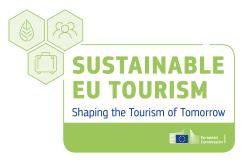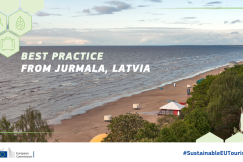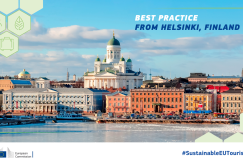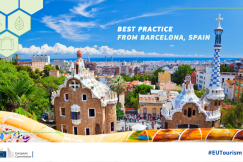Best practices
01 July 2025
Sustainable EU Tourism project - best practice: Cork
Best practices
01 July 2025
Coastal, maritime and inland water tourism
Cultural tourism
Gastronomy tourism
+12 more
Login / create an account to be able to react
-
3

Cork, Ireland’s second most visited city, is actively preserving its cultural heritage through strategic conservation efforts, digital innovation, and community-led initiatives. By combining public funding, immersive technology, and stakeholder collaboration, the city is enhancing the tourism experience while preserving its historical identity.
Topics
Ireland
Destination Management & Marketing Organisations
Local Authorities
-
Specific types of tourism
-
-
Coastal, maritime and inland water tourism
-
Cultural tourism
-
Gastronomy tourism
-
MICE tourism
-
Rural tourism
-
Urban/city tourism
-
-
Transition Pathway Strategic Areas
-
-
Best practices, peer learning and networking
-
Governance of tourism destinations
-
Innovative tourism services
-
Well-being of residents
-
-
Business activities
-
-
Activities of associations and other organisations supporting tourism
-
Festivals, cultural and entertainment activities
-
Museums
-
Operation of historical sites
-
Other
-
Share
Cork, Ireland, has been recognised as a best practice by the Sustainable EU Tourism project for its integrated approach to preserving cultural heritage while enhancing the tourism offer.
With around 2.5 million overnight stays in 2023 and tourism contributing 14.4% to the local GDP, Cork has made cultural preservation a cornerstone of its tourism strategy.
Driven by the Cork City Development Plan (2022-2028), which includes specific objectives for built heritage, the city maintains over 1,100 listed buildings and supports their conservation through public and private efforts.
Among its innovative initiatives is the Playful Culture Trail, launched in 2021 by a network of 30 cultural institutions to make heritage engaging for children through interactive, summer programming.
Cork also embraces emerging technologies like AI, VR, and AR to enhance visitor experiences. Additionally, the city partnered with the Technical University Munster to create a data-driven tool that uses sensors and local data to better manage visitor flows and protect sites from overcrowding.
Cork’s achievements are supported by strong national partnerships, community engagement, and creative funding models. These efforts not only protect heritage but also foster a deeper sense of identity and pride, increase visitor satisfaction, and contribute to long-term tourism sustainability.
For more details on the key challenges the destination has faced, and the solutions implemented to address them, please refer to the attached document.
#Destination management #Sustainable tourism #Cultural preservation #Innovation in tourism #Tourism development #Stakeholder engagement #Travel technology #Community engagement
Documents
Comments (0)
Related content
See also
-
14
Sustainable EU Tourism - Key challenges and best practices
- Categories
- Coastal, maritime and inland water tourism Cultural tourism Ecotourism +64 more
-
24
EXPERIENCE: Completed initiative for boosting off-season tourism
- Categories
- Coastal, maritime and inland water tourism Cultural tourism Ecotourism +38 more
-
7
Sustainable EU Tourism project - best practice: Barcelona
- Categories
- Cultural tourism Gastronomy tourism MICE tourism +37 more







